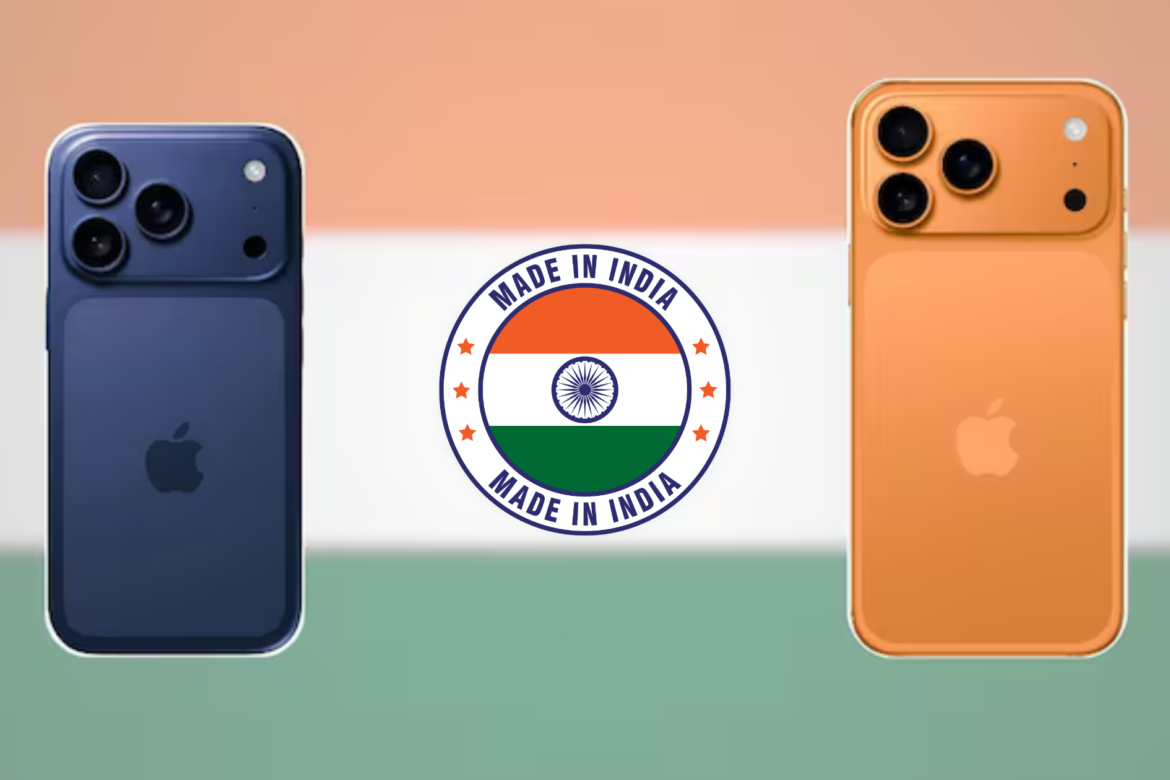iPhone 17’s Made-in-India Tag: What It Means for Indian Consumers
Apple’s upcoming iPhone 17 is making news not only for its design and highlights but also for its production site. For the first time, the iPhone 17 will carry the “Made in India” tag, marking a notable milestone in India’s journey as a global hub for tech manufacturing. But what does this imply for Indian shoppers? Let’s clear out!
Boost to Neighbourhood Manufacturing
Apple has chosen to manufacture the iPhone 17 in India, and this appears that the company has certainty in the manufacturing ecosystem in India. India has been gradually drawing international technology firms through the “Make in India” program. Due to the fact that iPhone 17 can be assembled in the country, Apple will have a more straightforward supply chain, less reliance on imports, and, perhaps, lower production expenses.
This may include faster availability of new models among consumers in India. In many cases, the shipped goods are delayed or have limited stocks, particularly in the first stage of the launch. One way to overcome this is to manufacture products locally so that the iPhone 17 can be available to the Indian consumers promptly.
Potential Cost Benefits
Although Apple items are not ordinarily reasonable, producing the iPhone 17 in India might offer assistance in saving some cash, including costs related to import duties and logistics. In the long run, this would result in slightly more affordable prices for Indian customers than those of the earlier foreign imported models.
In addition, Apple may pass some of those savings to customers through local promotional offers, exchange offers, or attractive EMI options. The price cut might not be quite aggressive, but every single rupee counts among the cost-conscious buyers in India.
Quality and Reliability
Some shoppers might be concerned about whether an iPhone manufactured locally would be of the same quality as those smartphones created in other nations. There are rigid manufacturing rules that Apple abides by universally, and its plants in India are no exceptions to these quality control measures. In brief, a “Made in India” iPhone 17 would have the same performance, resilience, and reliability as its counterparts in other countries.
Apple is also collaborating with established Indian partners to assemble and produce iPhones in India, where laborers are being trained and manufacturing is being performed accurately. The end user thus has no reason to doubt the high-end experience that Apple is known for delivering.
Strengthening After-Sales Services
Local production would also benefit from after-sales services. Spare parts and repair parts can become more available with production being near the home. This has the potential to reduce the time it takes to repair a product in the Apple service centers and increase customer satisfaction.
Besides this, Apple can also increase its number of service networks in India to serve the emerging demand for iPhones manufactured in India, so that it can benefit users in smaller towns and cities.
Economic and Job Impact
In addition to the benefits to consumers, Apple has an even greater impact on the economy. Production of iPhone 17 in India will provide thousands of people with jobs in production, logistics, and supply chain management. It also helps in promoting ancillary industries like electronics components, packaging, and quality testing within the country.
For consumers, this may have no immediate impact on their daily phone use, but it creates a sense of pride and confidence in India’s growing role in global technology production.
Conclusion
The “Made in India” tag on iPhone 17 isn’t only a label but also a symbol of accelerated accessibility, possible price reductions, better operation, and a step toward self-reliance in tech manufacturing. Indian consumers can look forward to receiving the latest Apple innovation while contributing to the country’s economic growth.
Apple is pointing to make India one of its production bases, so the iPhone 17 seems to be the first of numerous gadgets proudly made in the nation. For Indian shoppers, it is time to celebrate worldwide innovation produced nearer to home.



